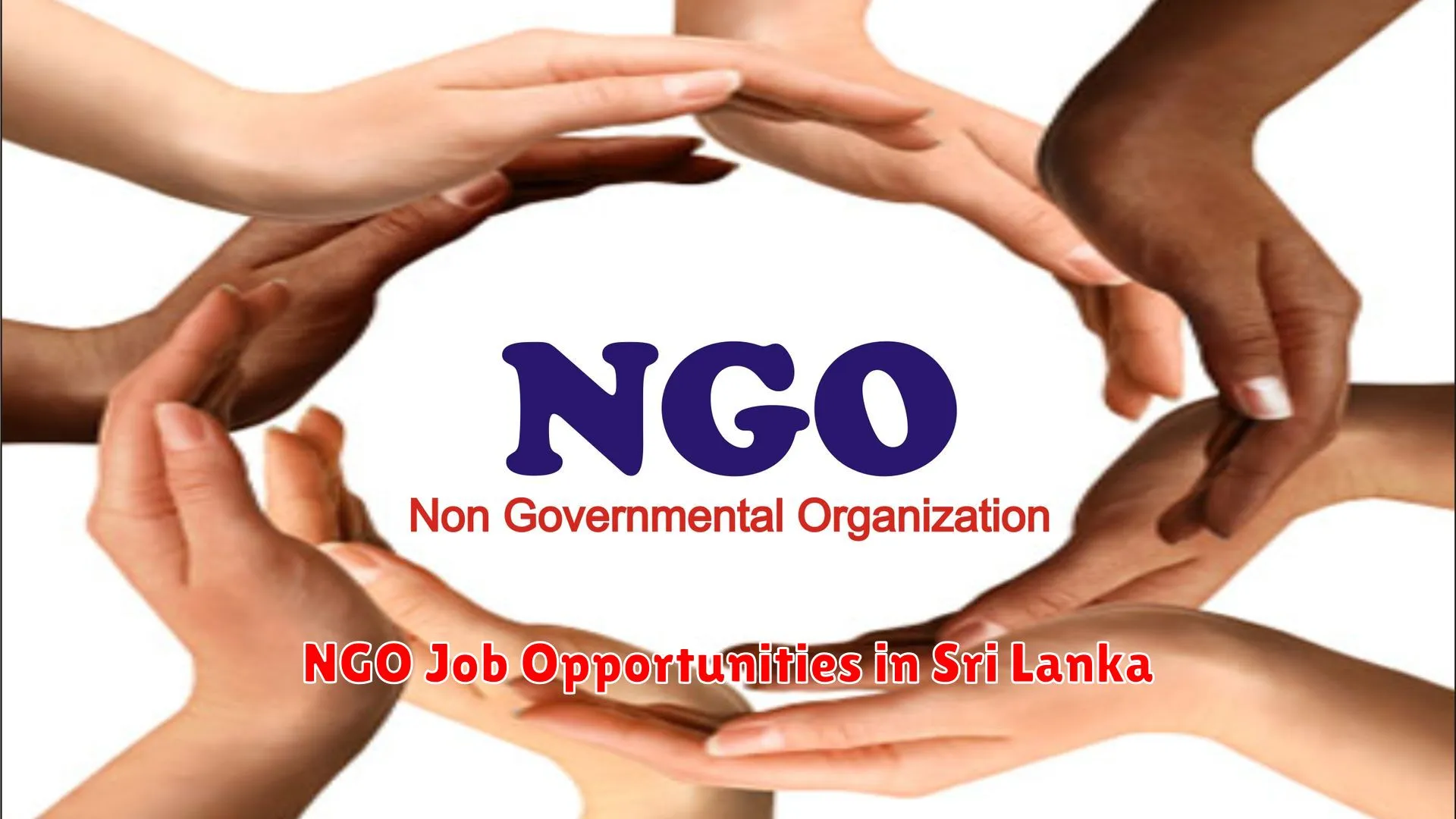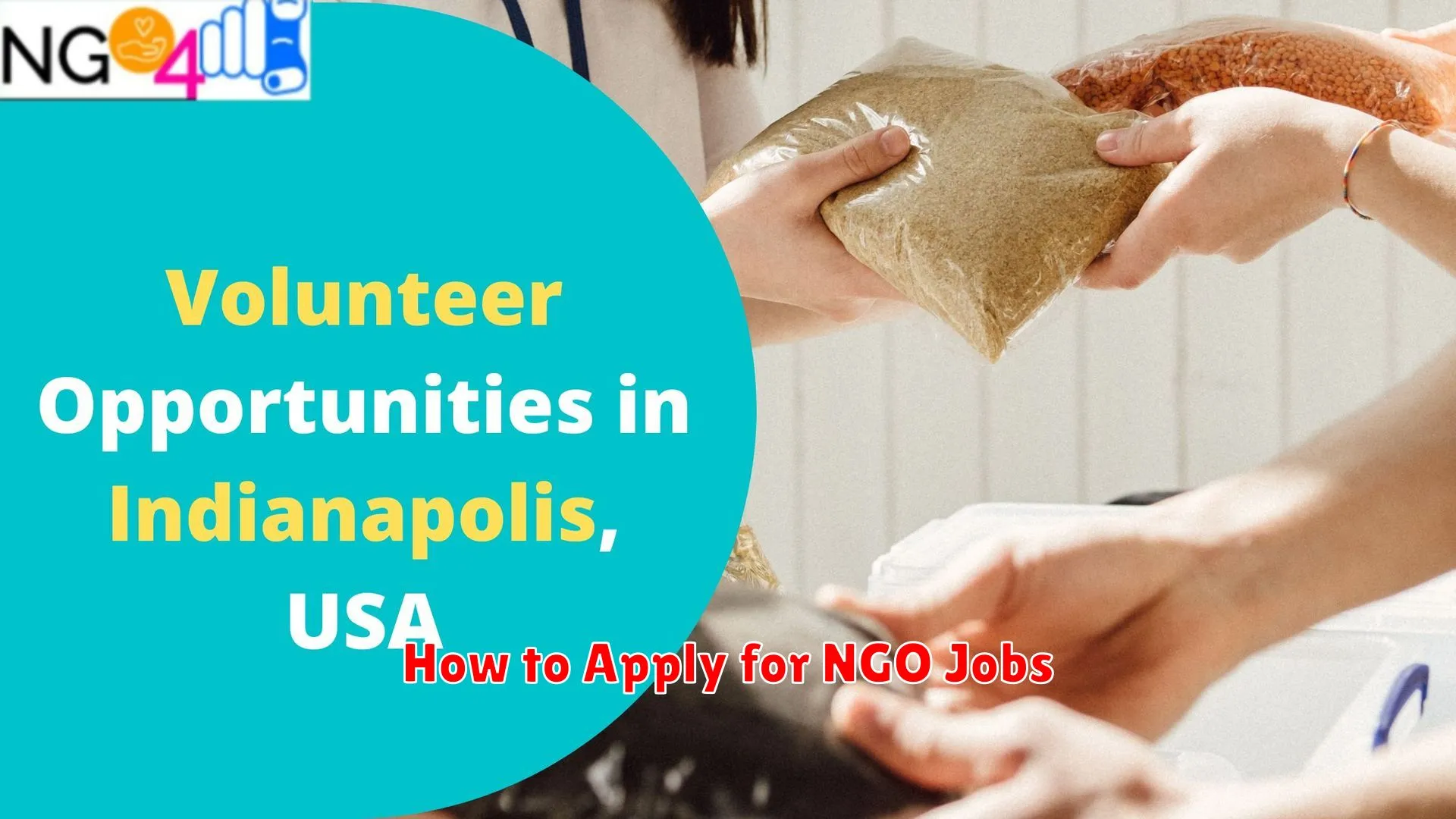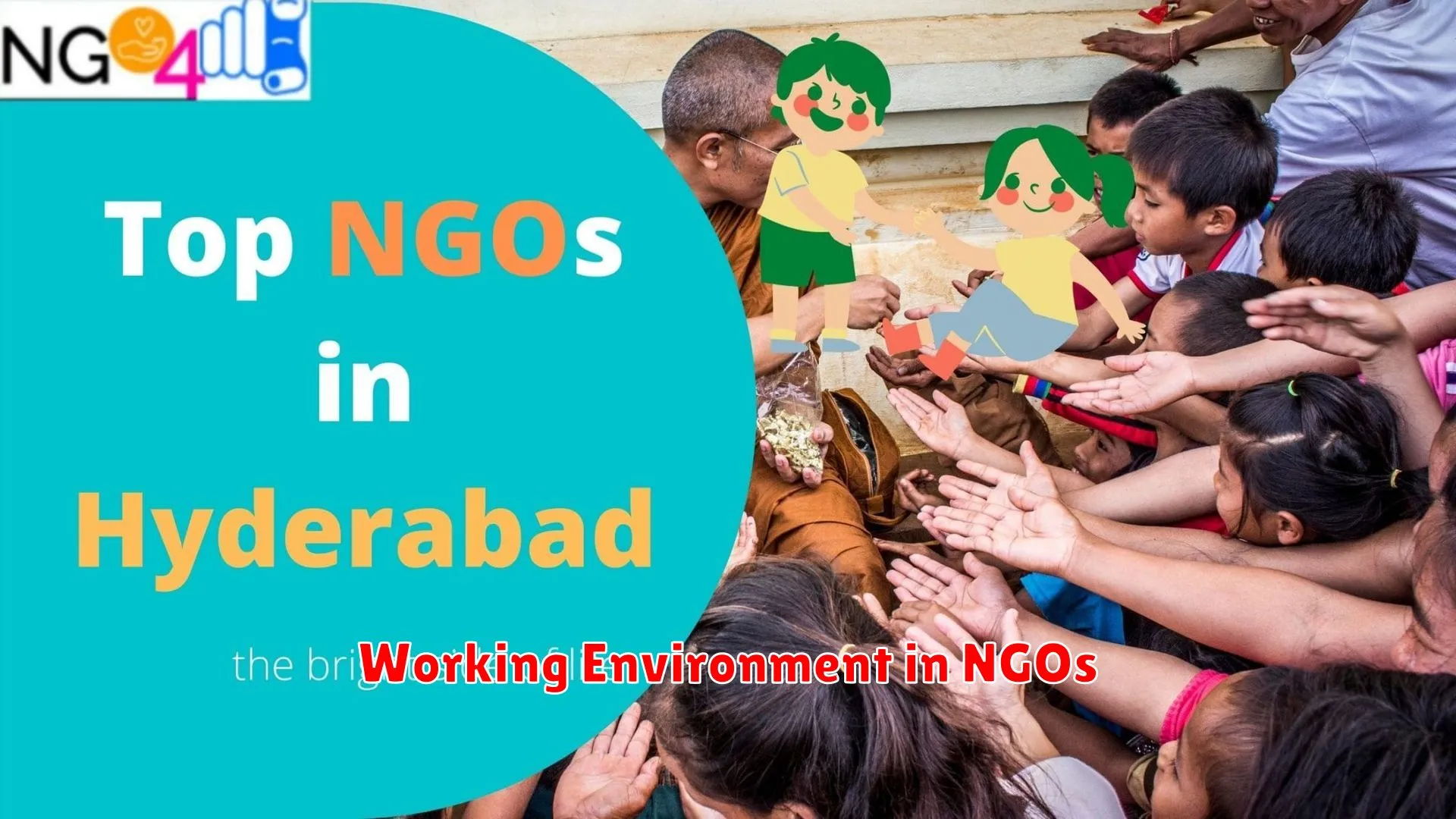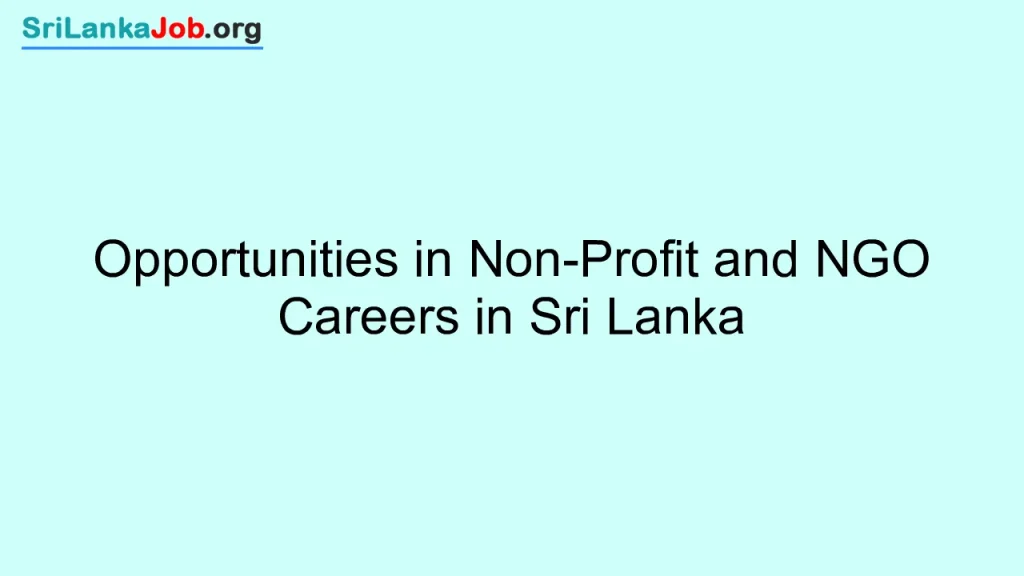
Discover the promising career opportunities in non-profit and NGO sectors in Sri Lanka, where passionate individuals can make a meaningful impact on society and contribute to positive change.
Non-Profit Sector Overview
As a prominent sector in Sri Lanka, the non-profit industry plays a vital role in addressing various social, economic, and environmental issues within the country. Non-profit organizations, also known as NGOs (Non-Governmental Organizations), operate based on the principle of serving the public good rather than generating profits for shareholders.
The non-profit sector in Sri Lanka encompasses a wide range of areas, including:
- Education
- Healthcare
- Environment conservation
- Human rights
- Community development
Non-profit organizations in Sri Lanka typically rely on donations, grants, and funding from governmental and international sources to sustain their activities and initiatives. These organizations often work in collaboration with local communities, government entities, and other stakeholders to create positive impact and bring about social change.
Key characteristics of the non-profit sector in Sri Lanka include:
- Emphasis on social welfare and advocacy
- Transparency and accountability in financial management
- Dedicated volunteers and staff members committed to the organization’s mission
- Collaborative partnerships for greater reach and effectiveness
With the increasing recognition of the importance of social responsibility and sustainable development, the non-profit sector in Sri Lanka offers diverse opportunities for individuals looking to pursue a meaningful career focused on making a difference in society.
NGO Job Opportunities in Sri Lanka

Non-Governmental Organizations (NGOs) in Sri Lanka offer diverse job opportunities for individuals seeking meaningful and impactful careers in the non-profit sector. With a growing focus on social and environmental initiatives, NGOs play a crucial role in addressing pressing issues and driving positive change in the country.
1. Project Coordinator: NGOs in Sri Lanka often seek experienced project coordinators to oversee and manage various initiatives. This role involves planning, implementing, and evaluating projects to ensure they meet their objectives and have a lasting impact on communities.
2. Fundraising Specialist: Fundraising is vital for NGOs to sustain their operations and expand their reach. Fundraising specialists play a key role in developing fundraising strategies, cultivating donor relationships, and organizing fundraising events to support the organization’s mission.
3. Community Outreach Officer: Community outreach officers work closely with local communities to understand their needs and design programs that address social issues effectively. They engage with stakeholders, build partnerships, and advocate for marginalized groups to create a more inclusive society.
4. Monitoring and Evaluation Specialist: Ensuring the impact and effectiveness of NGO programs is essential. Monitoring and evaluation specialists collect data, analyze results, and provide insights to improve program outcomes and demonstrate accountability to donors and stakeholders.
5. Program Manager: Program managers oversee the planning, implementation, and evaluation of multiple projects within an NGO. They coordinate with various teams, manage budgets, and monitor progress to ensure programs are delivered successfully and achieve their intended goals.
In conclusion, working in an NGO in Sri Lanka presents a unique opportunity to contribute to the country’s development, address social challenges, and make a positive difference in the lives of individuals and communities. If you are passionate about social impact and looking for a rewarding career, exploring NGO job opportunities in Sri Lanka could be the right path for you.
Skills and Qualifications for NGO Careers
Working in non-profit and NGO (Non-Governmental Organization) careers in Sri Lanka requires a specific skill set and qualifications to effectively contribute to meaningful projects and initiatives. Here are some key skills and qualifications that are highly valued in the NGO sector:
1. Interpersonal Skills
Interpersonal skills are essential for building relationships with beneficiaries, stakeholders, and team members. Being able to communicate effectively, listen actively, and empathize with others are crucial for success in NGO careers.
2. Cross-Cultural Competence
As NGOs often work with diverse communities and populations, cross-cultural competence is paramount. Understanding and respecting different cultural norms, values, and practices can enhance the effectiveness of NGO projects.
3. Project Management Skills
Proficiency in project management is valuable for coordinating initiatives, managing resources, and ensuring that programs are executed efficiently. Skills such as planning, budgeting, and monitoring progress are highly sought after.
4. Knowledge of Development Issues
Having a solid understanding of local and global development issues is crucial for NGO professionals. Knowledge about poverty, healthcare, education, environmental sustainability, and human rights can inform decision-making and program development.
5. Language Proficiency
Being proficient in local languages or other relevant languages spoken in the communities where NGOs operate can facilitate better communication and collaboration. Language skills can help bridge the gap between beneficiaries and organizations.
6. Educational Background
While specific educational requirements vary, having a background in fields such as social sciences, international relations, public health, or development studies can be beneficial for pursuing a career in NGOs. Advanced degrees or certifications in relevant areas can also enhance career prospects.
By acquiring these skills and qualifications, individuals can position themselves for meaningful and impactful careers in the vibrant non-profit and NGO sector in Sri Lanka.
How to Apply for NGO Jobs

Applying for NGO jobs in Sri Lanka requires a strategic approach to increase your chances of standing out among other candidates. Follow these steps to navigate the application process effectively:
- Research NGOs: Start by researching the NGOs operating in Sri Lanka and identify the ones that align with your values and goals. Visit their websites, read about their projects and initiatives, and understand their mission.
- Review Job Postings: Regularly check job postings on NGO websites, job portals, and social media platforms. Pay attention to the requirements, qualifications, and application deadlines.
- Customize Your Resume: Tailor your resume to highlight relevant skills, experiences, and achievements that demonstrate your passion for the NGO sector. Emphasize your commitment to social impact and community development.
- Write a Compelling Cover Letter: Craft a personalized cover letter that explains why you are passionate about working for the NGO and how your background makes you a strong candidate for the position.
- Network: Attend NGO events, workshops, and seminars to expand your network within the sector. Building relationships with professionals in the field can help you access hidden job opportunities.
- Prepare for Interviews: Practice answering common interview questions related to NGO work, such as your motivation for joining the organization, your understanding of development issues, and your teamwork skills.
- Follow Up: After submitting your application, follow up with the NGO to express your continued interest in the position. This demonstrates your enthusiasm and proactive attitude.
NGO Interview Techniques
Interviewing for a position within a non-profit organization or NGO in Sri Lanka requires a unique approach to showcase your dedication and passion for social causes. Here are some valuable techniques to help you ace your NGO interview:
- Research the Organization: Before the interview, thoroughly research the NGO’s mission, projects, and values. Understanding the organization’s work will demonstrate your interest and commitment.
- Highlight Your Relevant Experience: Emphasize any previous experience you have that aligns with the NGO’s mission. Whether it’s volunteer work, internships, or relevant skills, make sure to showcase how your background fits the organization’s goals.
- Prepare Meaningful Questions: Show your engagement by preparing insightful questions about the organization’s current projects, challenges, and future goals. This demonstrates your interest in contributing to the organization’s success.
- Exhibit Your Soft Skills: Non-profits often seek candidates with strong interpersonal skills, empathy, and adaptability. During the interview, highlight your ability to collaborate, communicate effectively, and work in diverse teams.
- Demonstrate Passion for the Cause: NGOs look for individuals who are genuinely passionate about making a positive impact on society. Be prepared to share stories or examples that illustrate your commitment to social change.
- Showcase Your Problem-Solving Skills: In the non-profit sector, the ability to think critically and find innovative solutions is highly valued. Be ready to discuss how you have overcome challenges or contributed to successful outcomes in previous roles.
By incorporating these NGO interview techniques into your preparation, you can present yourself as a strong candidate who is not only qualified for the role but also deeply aligned with the organization’s goals and values.
Working Environment in NGOs

Non-Governmental Organizations (NGOs) in Sri Lanka provide a unique and fulfilling working environment for individuals passionate about making a positive impact on society. The work culture within NGOs is characterized by a strong sense of purpose and commitment to creating social change.
One key aspect of the working environment in NGOs is the collaborative atmosphere that encourages teamwork and cooperation among individuals coming from diverse backgrounds and experiences. Open communication and transparency are valued, fostering a supportive environment where everyone’s inputs are respected and considered.
NGOs also often provide flexible working arrangements to accommodate the needs of their employees, recognizing the importance of work-life balance. This flexibility allows individuals to engage in meaningful projects while also managing personal commitments.
In addition, the opportunities for growth and development in NGOs are abundant. Employees are encouraged to participate in training programs and skill-building workshops to enhance their expertise and advance their careers within the organization.
The impact-driven focus of NGOs creates a work environment where individuals feel motivated and inspired to contribute their best efforts towards addressing social issues and bringing about positive change in the communities they serve.
Conclusion
In conclusion, Non-Profit and NGO careers in Sri Lanka offer rewarding opportunities for individuals to make a positive impact on society while pursuing their passion for social change.
















